Tracking Syria’s path to armed resistance
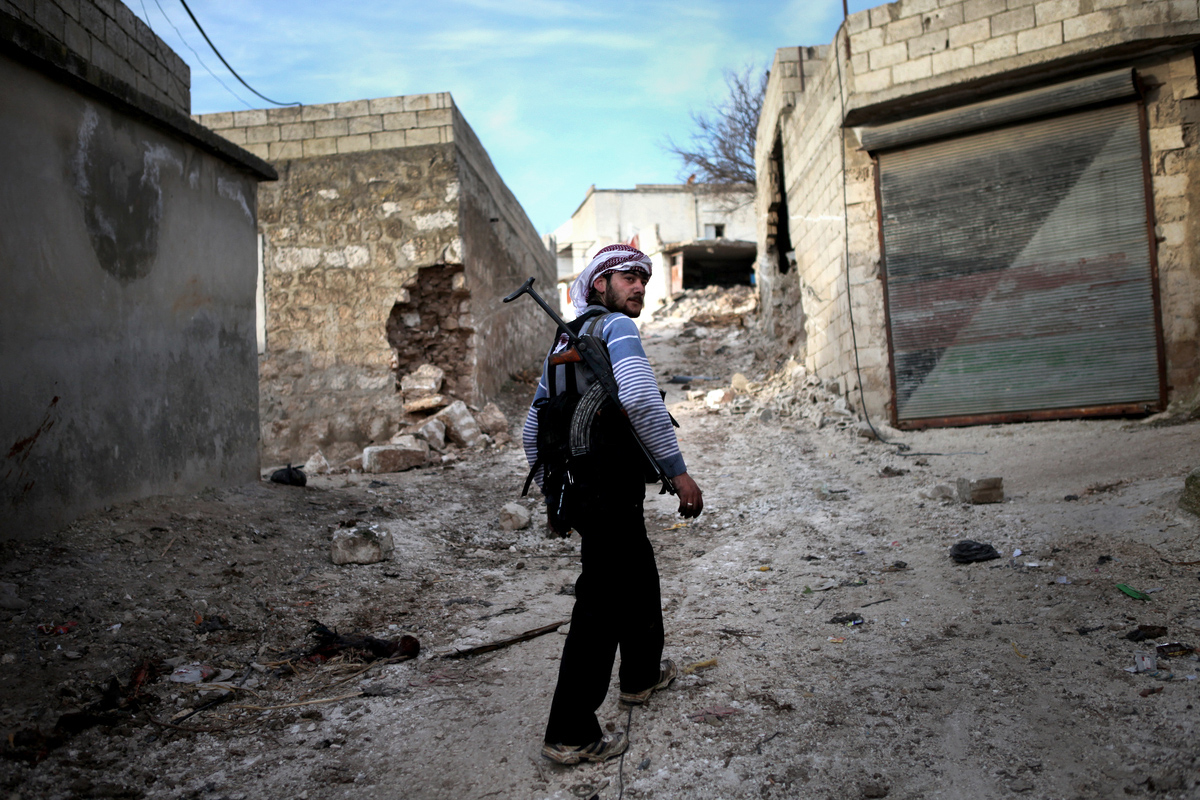
As Syrian revolutionary groups come to the realisation that they cannot count on outside forces to decide their fate, a key Swiss-based opposition leader outlines the broadening military structure of the resistance.
In an interview with swissinfo.ch, the political director of the Syrian Revolution General Commission (SRGC), Nidhal Derouiche, says revolutionaries have no choice but to take up arms against the regime led by President Bashar al-Assad in the wake of recent civilian massacres.
In doing so, Derouiche also reveals the deep divisions amongst different revolutionary factions which, if not carefully managed, could play into the hands of the regime as it clings to power.
swissinfo.ch: What is the SRGC and what is its relationship to the military and political councils representing the revolution in general?
Nidhal Derouiche: The SRGC constitutes a broad framework for the popular movement, whether with its civil peaceful dimension, or its armed dimension. We have offices in all provinces and are heading towards managing local councils in the areas freed from the control of the authority.
The revolutionaries provide protection, pay salaries to employees, and protect the judiciary and electricity services etc. All this is done outside the framework of the Syrian National Council (SNC) and outside what is called the overseas command of the Free Syrian Army.
Over two months ago we engaged on the issue of armed resistance. Many members of the SRGC have also joined armed resistance. So the strategy is based on civil and military action at the level of the revolution. There is effective coordination with elements of the armed resistance in Syria. We are moving towards effective coordination of the military resistance within the framework of military councils.
swissinfo.ch: How do you see the performance of the SNC as a voice for the revolution, and the fallout from its internal divisions?
N.D.: The formation and structure of the SNC has produced political and diplomatic inertia. Instead of being the political head of the Syrian revolution, the SNC turned into one of the parties of the Syrian opposition.
Since the Syria Friends meeting in Istanbul [in April], the SNC has been on the outside of the international political equation because countries including the Arab states, the United States and others are fed up with failed attempts to unite the Syrian opposition. Internally, nobody expects anything from the SNC anymore because its legitimacy has eroded.
swissinfo.ch: The divisions have also hit the ranks of the Free Syrian Army after conflicting statements from the overseas command in Turkey and the command inside. Given your contacts inside Syria, how do you see this matter?
N.D.: Based on our knowledge and through our relations with the military councils and the armed resistance inside Syria, we believe that the overseas military command of the Free Syrian Army, with all due respect to them, does not have any authority either over the military councils or the armed resistance at home.
swissinfo.ch: In light of the latest escalation of violence, the failure of the UN-Arab League peace envoy, and the inaction of the international community owing to Russian and Chinese positions, is there now no other option than armed resistance?
N.D.: Exactly, because the recourse to arming the resistance has come as a result of necessities on the ground, namely the atrocities committed by the regime and the failure of the international community to intervene effectively to protect civilians.
The Kofi Annan initiative is nothing but the outcome of the failure of effective international intervention. We said we are no longer committed to the initiative because it only documents the various crimes committed by this regime. The regime even exploits and utilises all these initiatives in order to commit more crimes. This is what has prompted many Syrian army elements to dissent.
The expulsion by several countries of Syrian ambassadors amounts to stripping legitimacy from the regime and this will also encourage many regime members abroad to dissent, if they find ways of protecting their families at home.
In terms of armament, as far as I know, what is in the possession of the resistance is not enough to adjust the balance. But owing to the corruption and seizure of weapons caches and what can be smuggled over some borders, some areas can obtain modest amounts of weapons.
swissinfo.ch: One of the criticisms of the SNC is that it does not move diplomatically as required. Has the SRGC started making contacts with the international community, specifically Russia and also Switzerland?
N.D.: We now have reasonable contacts. We have held some meetings and opened a dialogue with envoys of European and Arab countries and with the key decision-making countries.
So far we have not made any contact with the Russian side owing to its stance and because of our belief that the most important talks by the Russians today are specifically with the Americans, Europeans and the Gulf States. This is because Russia is fully convinced that the Bashar al-Assad regime will go but that the Russian interests in Syria must be preserved.
swissinfo.ch: The Syrian regime claims the country will plunge into sectarian war owing to the racial and religious structure of Syrian society. How does the SRGC view the sectarian problem, and what are you doing to avoid such a development?
N.D.: The regime has played up this issue a lot and still considers it one of the most important issues it has recourse to – its key way out is to push the revolution towards so-called civil war, either on sectarian grounds or so-called “all-against-all” war, thus pushing the homeland towards an abyss.
But since the Syrian revolution began it has had a non-sectarian, national popular characteristic. That does not mean that there are not some individual sectarian incidents here and there, but they do not represent the main characteristic of the direction of the revolution.
Nidhal Derouiche is a Swiss-based refugee from Syria.
He is a founding member of the Syrian Revolution General Commission and director of its political office. He has been tasked with establishing a dialogue between the different Syrian opposition groups with the aim of uniting them.
He was a member of the committee for the Defence of Democratic Freedom and Human Rights in Syria.
He was the only member of the Swiss-Syrian community to have participated in the formation of the Syrian National Council (SNC) in Istanbul in 2011.
More than 40 Syrian “revolution blocs” forged a coalition to unite their efforts against the regime of Bashar al-Assad in Istanbul, Turkey, last August.
The so-called Syrian Revolution General Commission (SRGC) said the coalition was formed due to “the dire need to unite the field, media and political efforts” of the pro-democracy movement launched in mid-March, 2011.
The long-term aim of the coalition is also to build “a democratic and civil state of institutions that grants freedom, equality, dignity and respect of human rights to all citizens,” according to a statement from the SRGC.
The SRGC include protests committees from across Syria, including flashpoint cities and towns, as well as The Syrian Revolution 2011 Facebook page, one of the drivers of the protests.
Protests broke out in Syria in March 2011, sparked by the revolts in Tunisia and Egypt.
The first rallies were in the southern town of Deraa; troops opened fire on the protestors, killing several people.
Unrest then spread to other areas, and President Bashar al-Assad sent troops and tanks to try to quell it.
Demonstrators are calling for democracy and freedom and an end to the Assad regime.
The regime has blamed “armed gangs and terrorists” for the continuing violence.
The United Nations says more than 9,000 civilians have been killed since the outbreak of violence.
Thousands of people have been detained.
A number of countries, including Switzerland, have imposed sanctions on Syria and leading figures from the regime.
Russia and China have vetoed sanctions resolutions submitted to the UN Security Council.
(Translated from Arabic by Mohamed Shokry)

In compliance with the JTI standards
More: SWI swissinfo.ch certified by the Journalism Trust Initiative
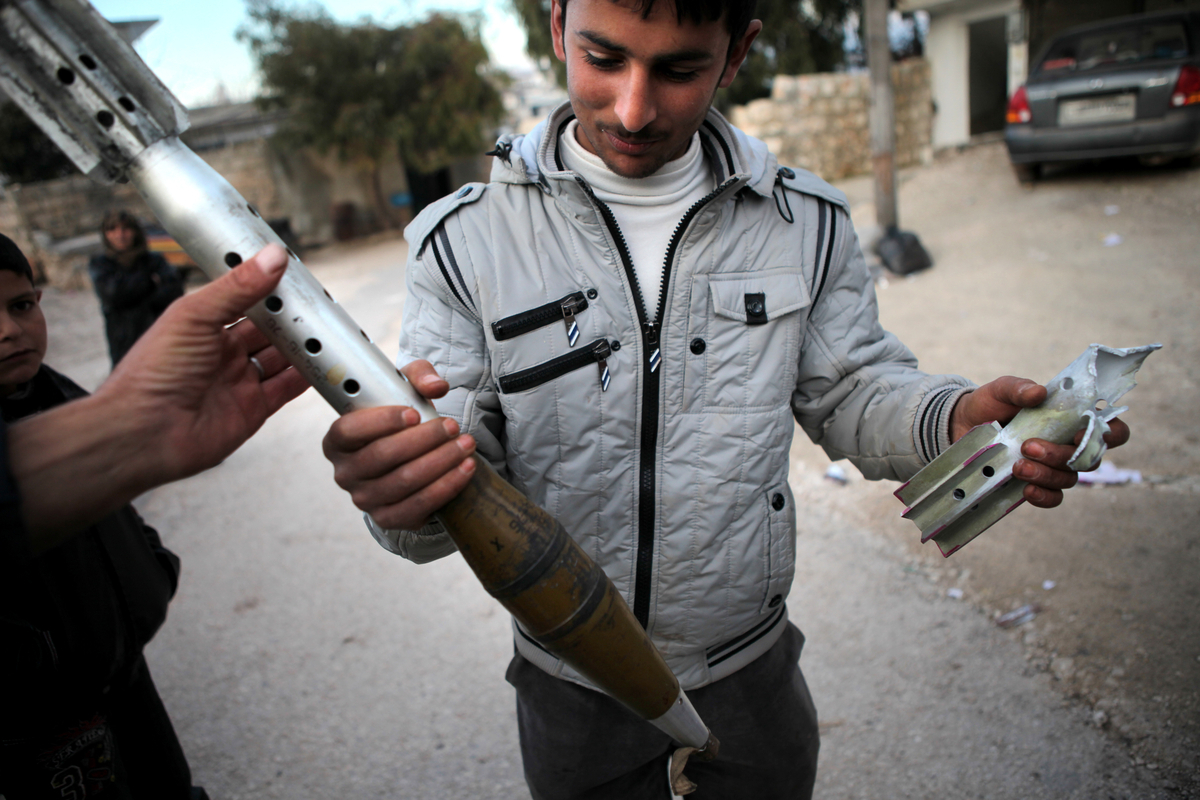
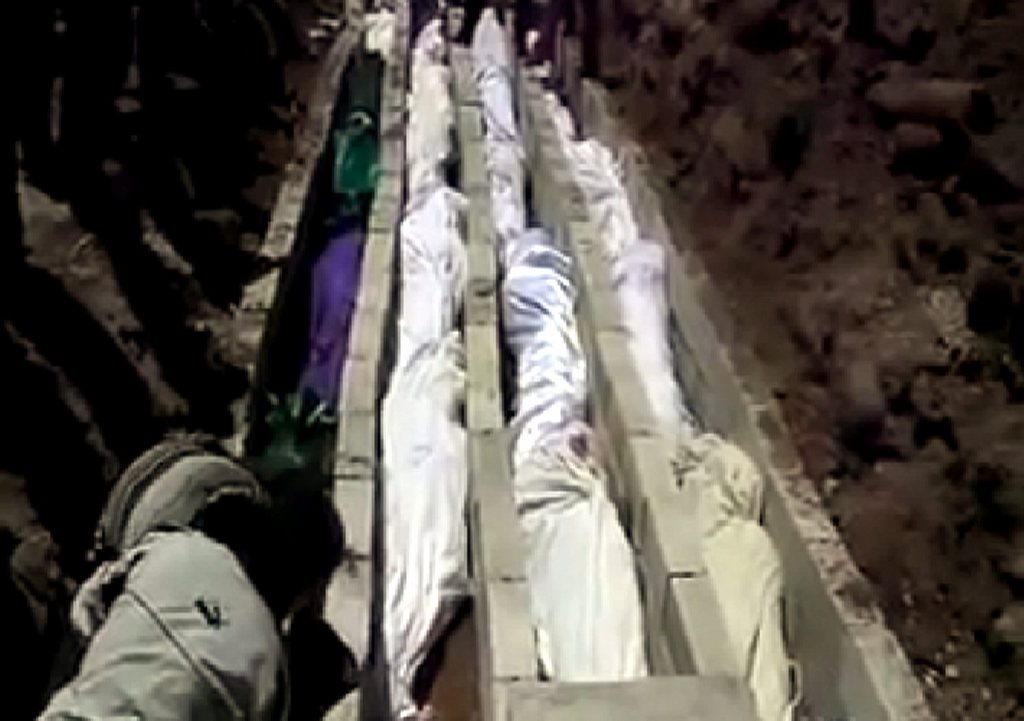
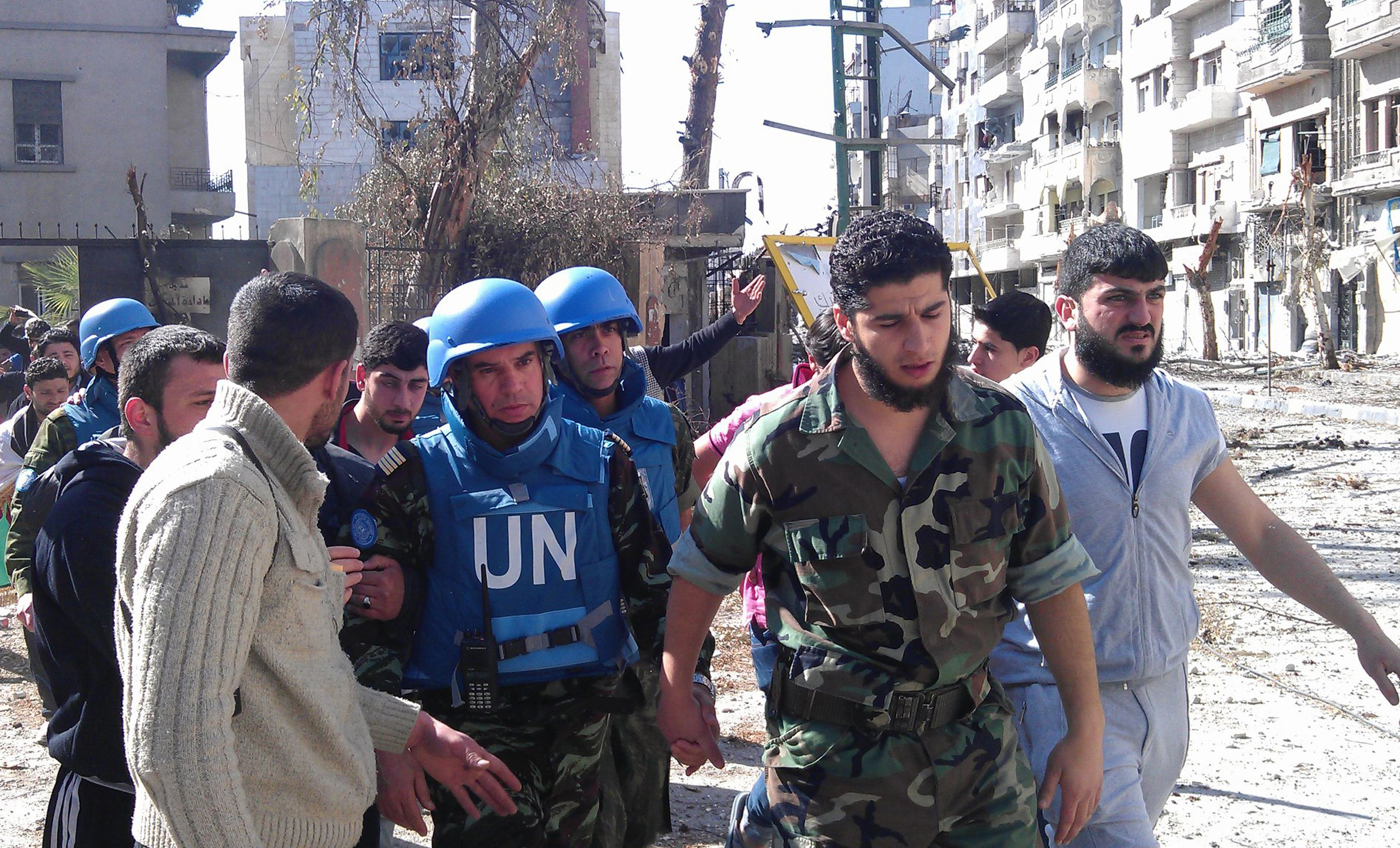
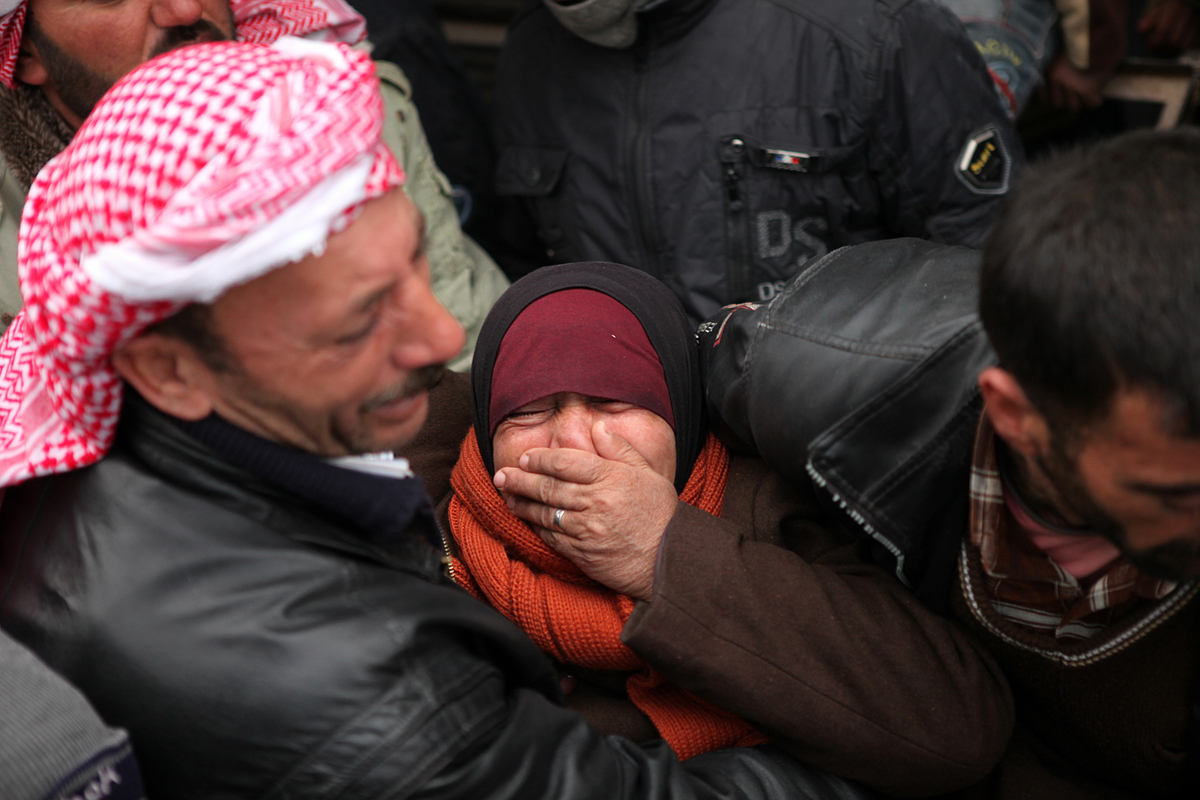
You can find an overview of ongoing debates with our journalists here. Please join us!
If you want to start a conversation about a topic raised in this article or want to report factual errors, email us at english@swissinfo.ch.